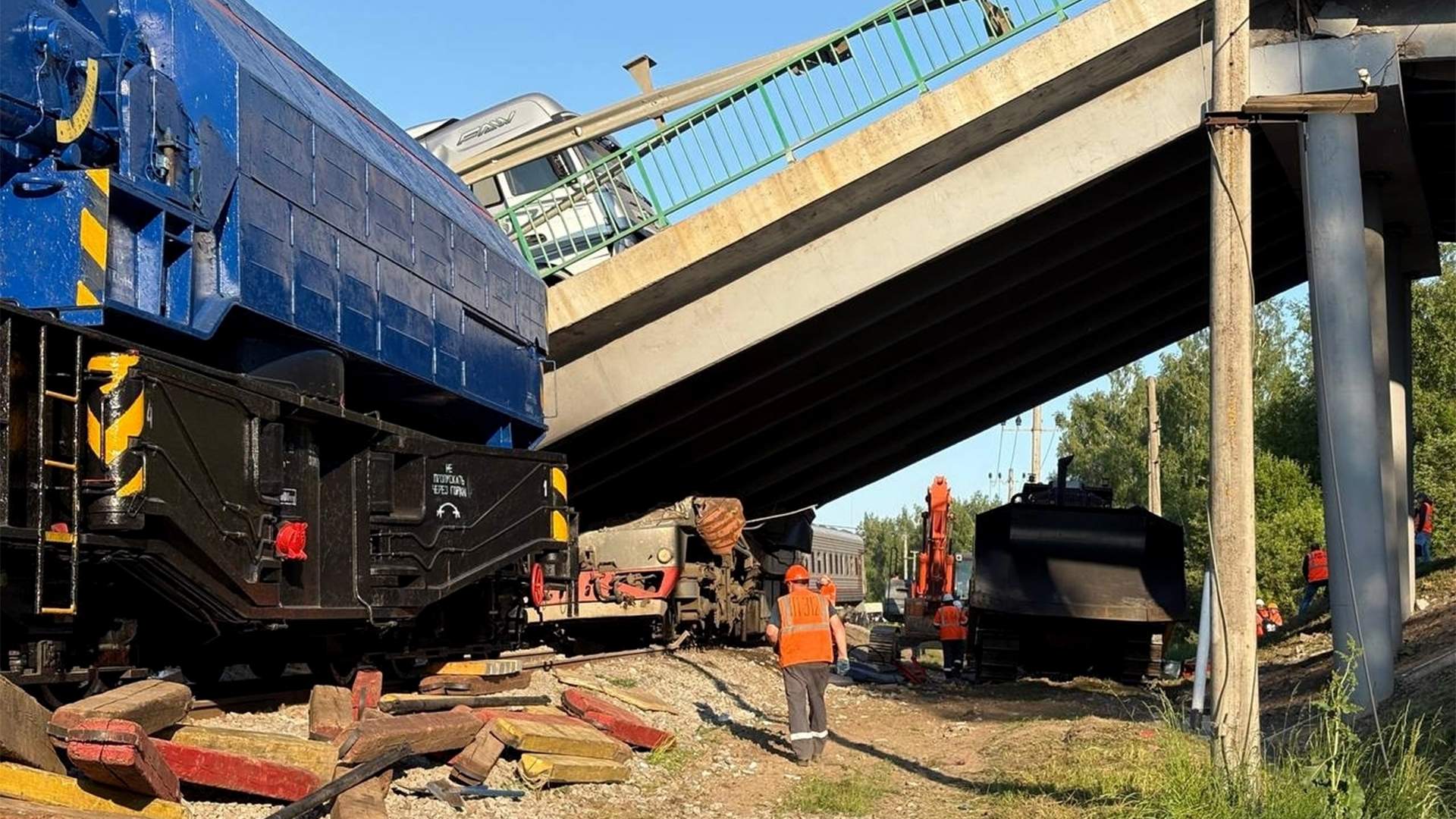Evil is welcome: how Ukraine and the West reacted to the tragedies in Russia

Over the past day, emergencies have occurred on the railway in two Russian regions at once — there are dead passengers, dozens of people injured and taken to hospitals. However, the tragic events on the territory of the Russian Federation are once again ignored or even indirectly encouraged in the Western press. At the same time, some American media outlets mentioned in their publications the activities of the Ukrainian special services, which had previously willingly assumed responsibility for such a thing. Big questions are also raised by the fact that the incidents occurred on the eve of the second round of direct negotiations between Russia and Ukraine. The Russian Foreign Ministry has already noted the painfulness and schadenfreude with which Kiev reacted to the tragedy. The experts interviewed by Izvestia do not rule out that this may eventually change the tone of the upcoming dialogue.
"What a hellish joy"
In the late evening of May 31, a tragedy occurred in the Bryansk region: at 22:44 Moscow time, a span of an automobile bridge collapsed on the Pilshino – Vygonichi section, as a result of which passenger train No. 86, en route Klimov – Moscow, derailed. Seven people were killed at the scene of the incident, and 71 others were injured. About 180 people and 60 pieces of equipment were involved in the aftermath.
A few hours later, it became known about a similar emergency in the neighboring Kursk region. According to the press service of Russian Railways, at about three o'clock in the morning, a diesel locomotive and three empty freight wagons derailed on the Ostapovo - Mikhailovsky Mine section. The reason is the fall of the bridge span. As a result, the driver was injured.
A criminal case has been opened into the incident. And the official representative of the Russian Foreign Ministry, Maria Zakharova, noted the painfulness and schadenfreude with which Ukraine reacted to the state of emergency in Russia.
"A tragedy has occurred, and the Russian law enforcement agencies are conducting a set of necessary investigative actions. As for the international aspect, the reaction in Ukraine is still striking, which, in my opinion, betrays the very painfulness that is one of the goals of its work. Look at the gloating, look at the hellish joy of both political figures, public figures, and those who, apparently, have been infected with this ideology," the diplomat said.
The official representative of the Russian Foreign Ministry noted that "all normal people, regardless of their abilities, wherever they are, either express sympathy or try to help."
"And here we see another fact, literally the dehumanization of those whom this very neo-Nazi ideology transforms from people into it is not clear who," Maria Zakharova emphasized.
Reaction in the West
As for the reaction in European political circles, there is no reassessment of what is happening, Tigran Meloyan, an analyst at the HSE Center for Mediterranean Studies, told Izvestia. Unlike in the United States, where the idea of inflicting a strategic defeat on Russia is gradually losing popularity, in Europe, any attacks or emergencies in the Russian Federation are not condemned, but, on the contrary, are often perceived as acceptable - which, according to the expert, reflects the continuing policy of maximum pressure on Russia.
Political scientist Denis Denisov links the tacit approval of what is happening on Russian territory from Western countries and the media with a steady policy of double standards. According to him, since 2014, any tragedies, including the events in Donbass and during the war, have either been ignored or justified by the West. A "victim" and a "culprit" have already been designated in advance, and in this logic, all responsibility always falls on Russia.
"This line will be maintained in the future, which means that any agreements with Ukraine must be legally rigidly fixed and accompanied by real, not symbolic guarantees," the expert shared his opinion with Izvestia.
According to Ivan Loshkarev, associate professor of the MGIMO Department of Political Theory, the silence of world politicians and the media in response to the events in the Russian Federation is explained.
"In the West, incidents around Russian infrastructure and civilian casualties in the Russian Federation are often deliberately ignored, as this violates their usual narrative about Ukraine as a victim," the political scientist told Izvestia.
Even the attack on the Nord Stream gas pipeline, in which the Ukrainian side was suspected, did not cause a serious reaction in the West, the expert recalled.
Risks to the negotiation process
The second round of direct talks between Russia and Ukraine is scheduled to take place in Istanbul on June 2, as previously announced by Russian Foreign Minister Sergei Lavrov. He also said that the Russian delegation headed by Vladimir Medinsky would hand over to the Ukrainian side a memorandum with positions on key issues of overcoming the root causes of the conflict.
In general, an increasing number of experts tend to view the background developing before this meeting as an attempt to disrupt the negotiations in Turkey, where Russian demands are due to be presented on Monday. For example, Tigran Meloyan does not rule out that Europe would like Russia to be the first to leave the negotiating table, or to strike back, which Ukraine could cite as a reason to withdraw from the process and withdraw from any commitments that may be put forward on June 2.
The first round of negotiations, which took place on May 16, ended with agreements on the exchange of prisoners according to the "1000 for 1000" formula, as well as the presentation by both sides of their approaches to the ceasefire. At that time, the meeting was described as constructive. However, the tone of the new round of dialogue may well change.
Переведено сервисом «Яндекс Переводчик»






